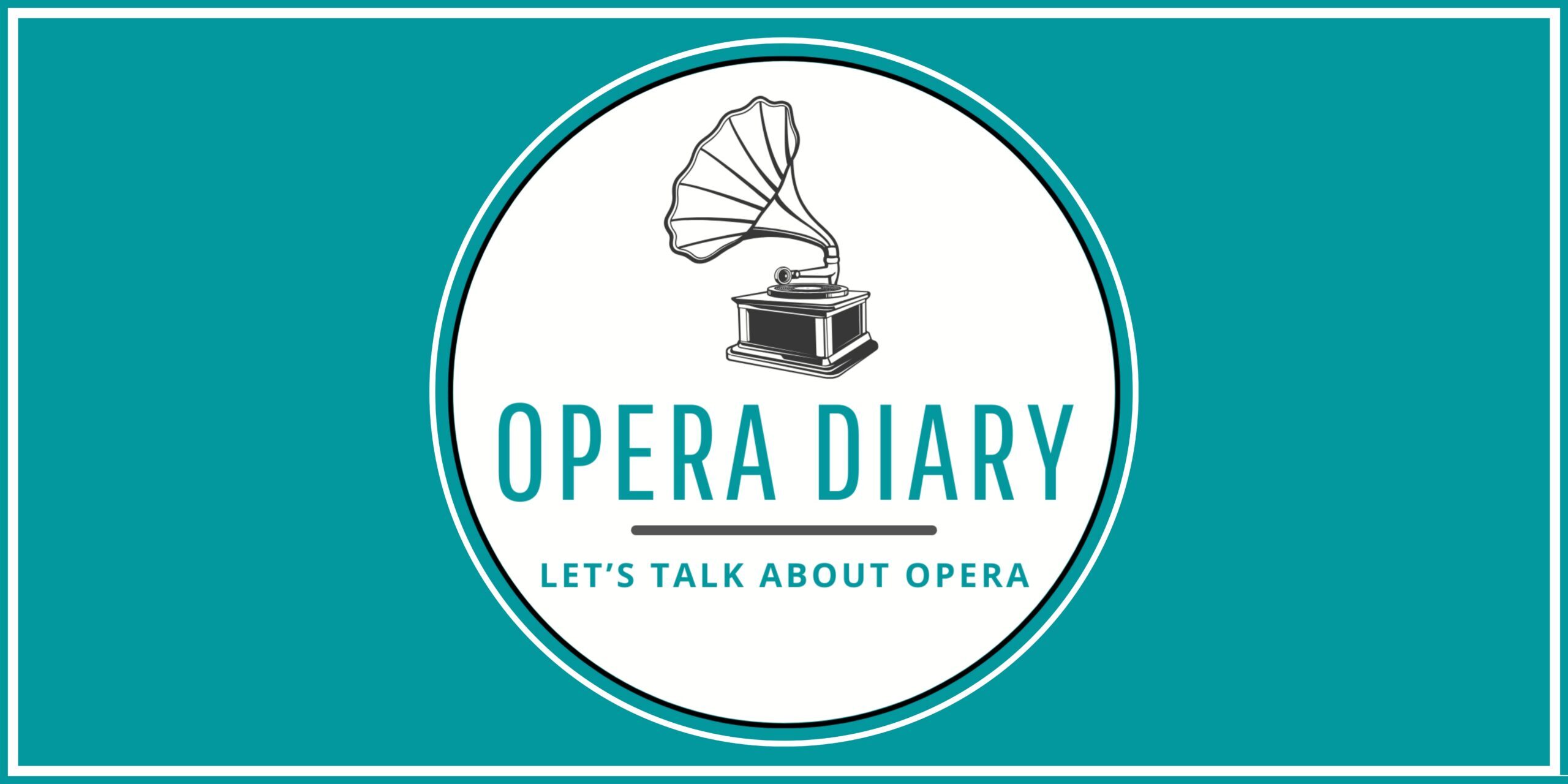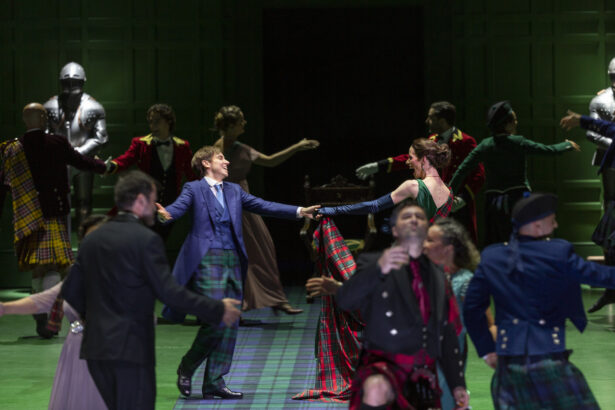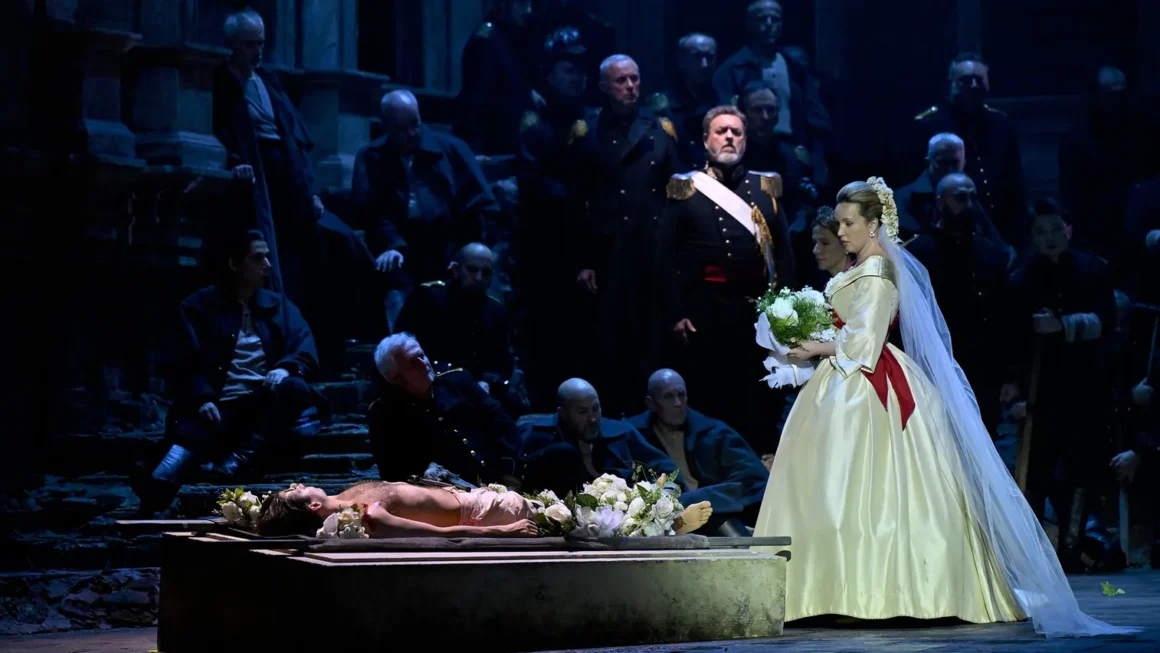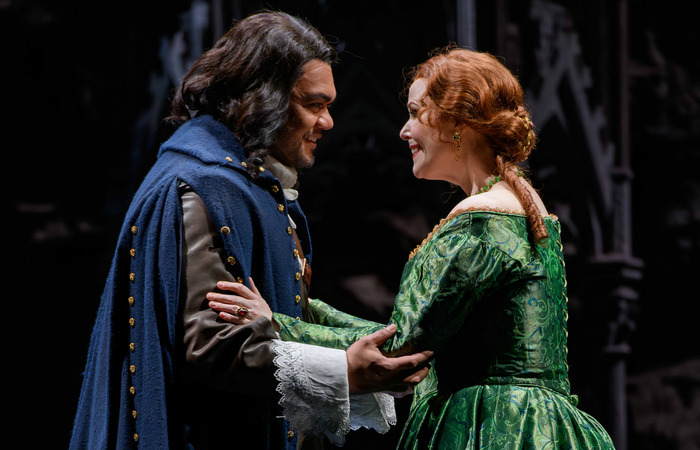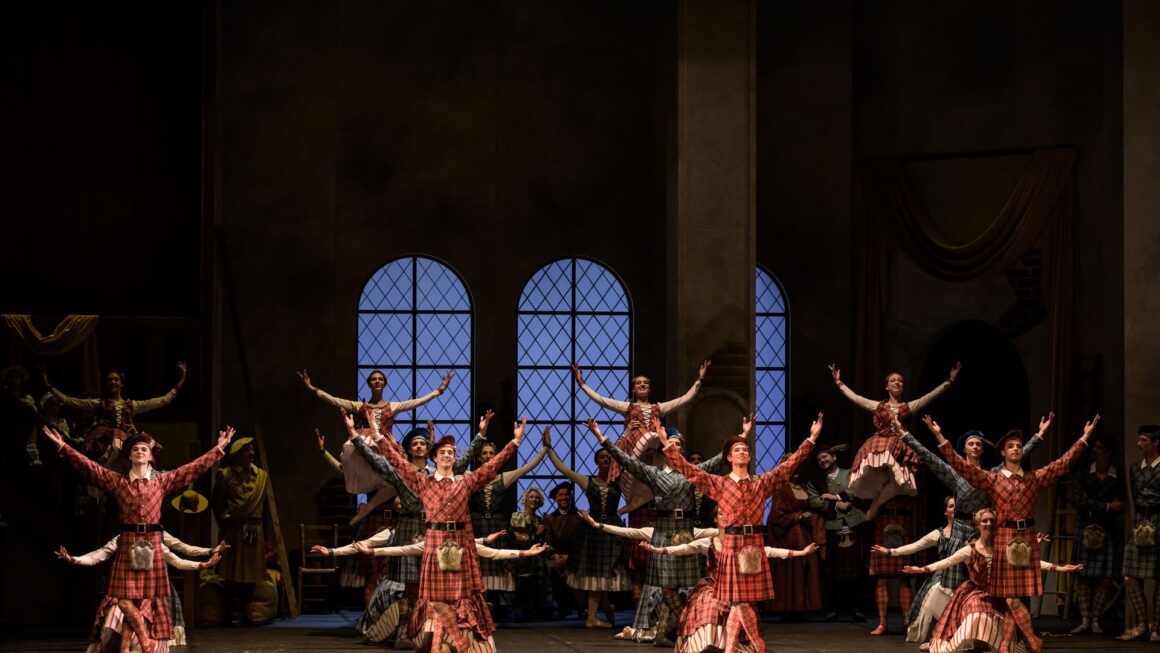On Friday evening at the Palais Garnier, everything converged for an exceptional rendition of Handel’s Ariodante. The cast was at the summit of their powers, the staging elegant and clear, and Raphaël Pichon with Ensemble Pygmalion delivered a performance of rare refinement. The audience rewarded this achievement with a standing ovation that lasted several minutes.
Raphaël Pichon and his Ensemble Pygmalion were undoubtedly the principal architects of this triumph. With crystalline precision, subtle nuance, razor-sharp rhythm, and a firm grasp of dramaturgy, their interpretation was brilliant. The balance between voices and orchestral texture was impeccably managed, and the sense of forward momentum never flagged.
Cecilia Molinari as Ariodante rose to the challenge with a performance of the highest order. From her opening Cieca notte, she inhabited her character with dark gravitas and tragic depth. Her Scherza infida was the emotional apex of the evening, in that moment, the theatre held its breath, not a cough, not a rustle disturbed the spell she wove.
Jacquelyn Stucker as Ginevra delivered an intense and deeply affecting portrayal, especially in Io ti bacio, o mano augusta. Her vocal purity, expressive shading, and dramatic commitment created a vivid bond with Molinari, and the duo’s shared scenes possessed a convincing chemistry and emotional clarity.
Christophe Dumaux as Polinesso brought full mastery to his role, exploring every shadow and nuance of this villainous instigator. His singing was a model of Handelian technique, and his stage presence, volatile, magnetic, utterly believable, made Polinesso a riveting figure from first entrance to final bar. We left the theatre already eager to hear his Tamerlano next February.
Sabine Devieilhe as Dalinda was sheer luxury in this role. The full extent of the French soprano’s vocal pyrotechnics was on display, agile, brilliant, and full of character. Every note sparkled with clarity and precision, making her appearances a true delight.
Rupert Charlesworth as Lurcanio made an admirable foil to Polinesso. His tone was confident, his transitions smooth, and his characterization effective, giving the audience a credible counterpoint in the unfolding intrigue.
Luca Tittoto as the King of Scotland fulfilled all the requirements of the role with gravitas, authority, and occasional tenderness; his portrayal of a father torn between duty and paternal anguish rounded out the ensemble cast convincingly.
Robert Carsen’s staging, first introduced two years ago and now revived, is both intelligent and visually striking. The choice to transpose the action into a British royal-family context, complete with paparazzi-overtones, works elegantly to underline the opera’s themes of reputation, power, and public image. The dominant green palette is vivid without becoming distracting; the visual storytelling remains clear and immediately accessible, even to those less familiar with Ariodante. The direction’s clarity and emotional logic allow the drama always to stay in the foreground.
This Ariodante was nothing short of a triumph. Every element, vocal, orchestral, staging, combined seamlessly to offer a performance of rare cohesion and emotional impact. One hopes that success like this ensures that Handel’s repertoire continues to find its place at Garnier for seasons to come.
